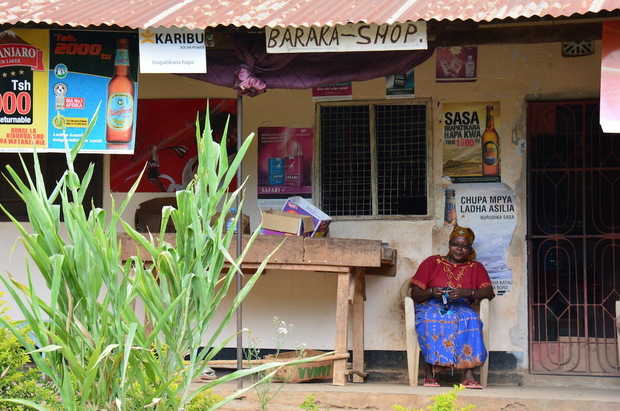Selling Entrepreneurship, Not Solar Lamps: Going Off Grid Series (Part 5)
A little over ten years ago, there weren’t that many more mobile subscriptions than landlines in Sub-Saharan Africa. It was expensive to lay the groundwork to get the lines to homes and businesses, and the only available payment subscriptions were expensive. All that changed when the concept of pay-as-you-go was introduced to mobile phone plans. Subscribers could now pre-pay and stretch out their minutes as long as they wanted. There are now over 650 million mobile phone subscribers in Africa — just about the same number of people who lack adequate, affordable access to energy.
In the same way that mobile phones took the lead over capital-intensive land lines to revolutionize communication in the developing world, we at KARIBU Solar Power believe that pay-as-you-go will revolutionize energy.
The scale that we work on is small — watts, not kilowatts or megawatts. And our pay-as-you-go solution does not necessitate capital-intensive installations up-front — in fact it can be carried anywhere. It’s mobile. And it can be passed on from rural community to rural community.
KARIBU Solar Power sells a solar lamp business-in-a-box kit to small shop owners in East Africa. Compared to most other solar companies, we’re different in three ways:
- Product: An income-generating asset, like a cow or a goat, not a one-off personal purchase
- Customer — the person who actually pays us for our product: A small shop owner, not a BoP consumer
- Business model: B2B, not B2C
From the customer perspective, our model works like this:
- Our customer buys a business-in-a-box kit, which contains:
- One solar panel
- Two rechargeable solar lamps, which also charge mobile phones
- Two wire handles to allow hanging or propping each lamp
- She resells one of the solar lamps in the kit to a consumer in her community for about the price of a kerosene lamp. They take it home to use it for light and to charge their mobile phone.
- When its battery is empty, they return to the shop and swap out the empty light for a fully charged one that the shop owner has charged with the solar panel in the kit, paying about the same as they would for kerosene.

So BoP consumers are able to access solar for the same price as kerosene, with the added benefit of mobile phone charging. And our product incentivizes our customer to eliminate kerosene, because she stands to benefit by continuing to sell these recharges, recouping her up-front investment in the kit. After that, it’s all profit for her—profit that she can reinvest in more kits, providing even more people with affordable solar.
There is no need for BoP end users to save up for a solar lamp, and we don’t finance any of our products for our customers. Our customers pay us up-front for the kit and can begin making money on day one.
Coca-Cola doesn’t sell sugar water, they sell “happiness”. Likewise, we’re not selling solar lamps, we’re selling entrepreneurship. We’re starting small. We’ve just completed product development based upon lessons that we’ve learned from target customers. We tested our business model with them to find out what worked, what didn’t, and how we can make it better. We’re working with manufacturers to complete our first production run of lamps, which will be sold in a pilot project based in Moshi, Tanzania, in the shadow of Kilimanjaro.
We’re learning as we go, but we’re hopeful that this model will work to welcome even more people to affordable solar power.
Meaghan Cassidy is vice president, operations for KARIBU Solar Power.
To find out more about the company, contact adam@karibusolar.com, follow them on Twitter @KARIBUSolar and on Facebook.
- Categories
- Energy
- Tags
- off-grid energy, solar
